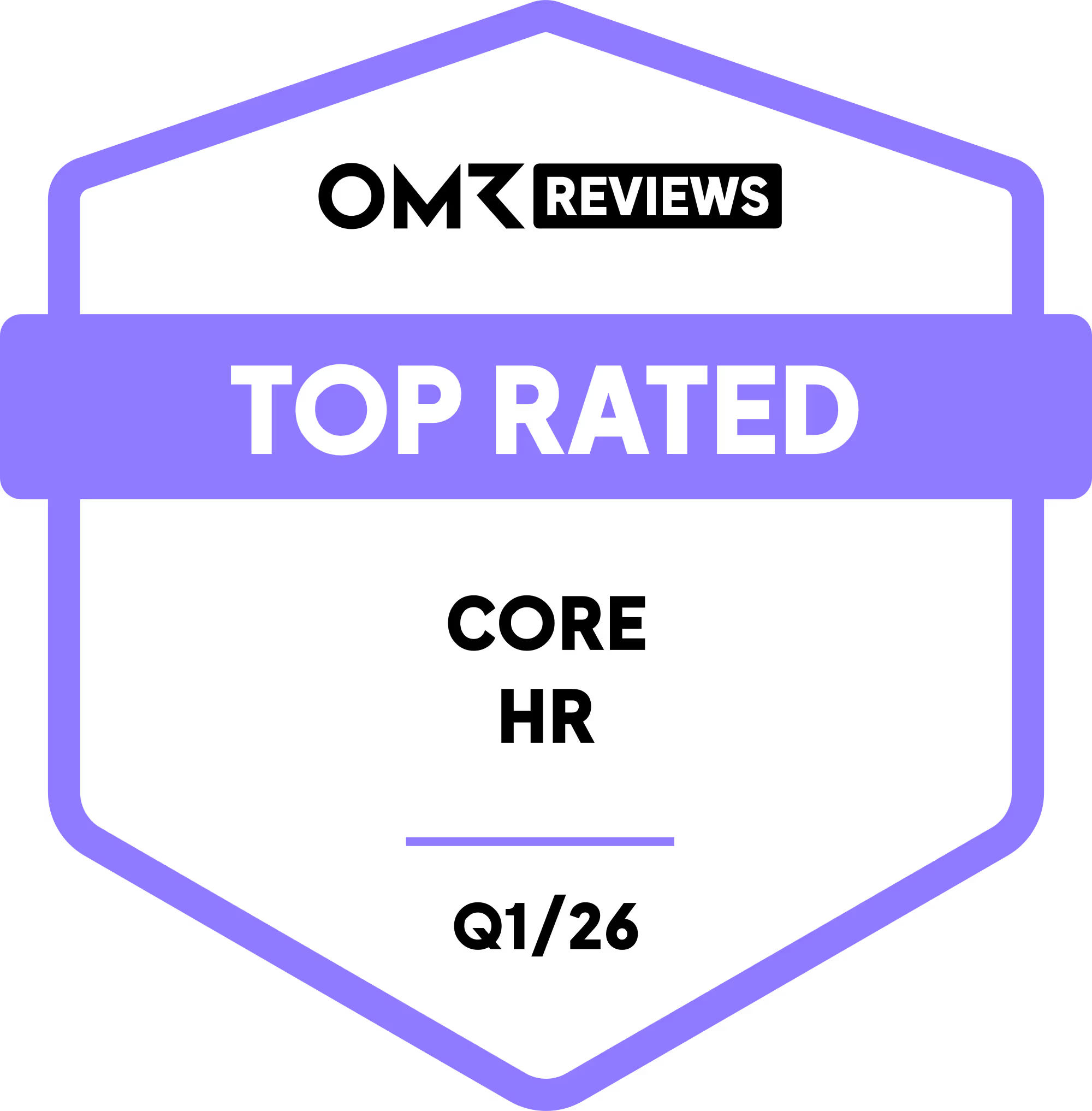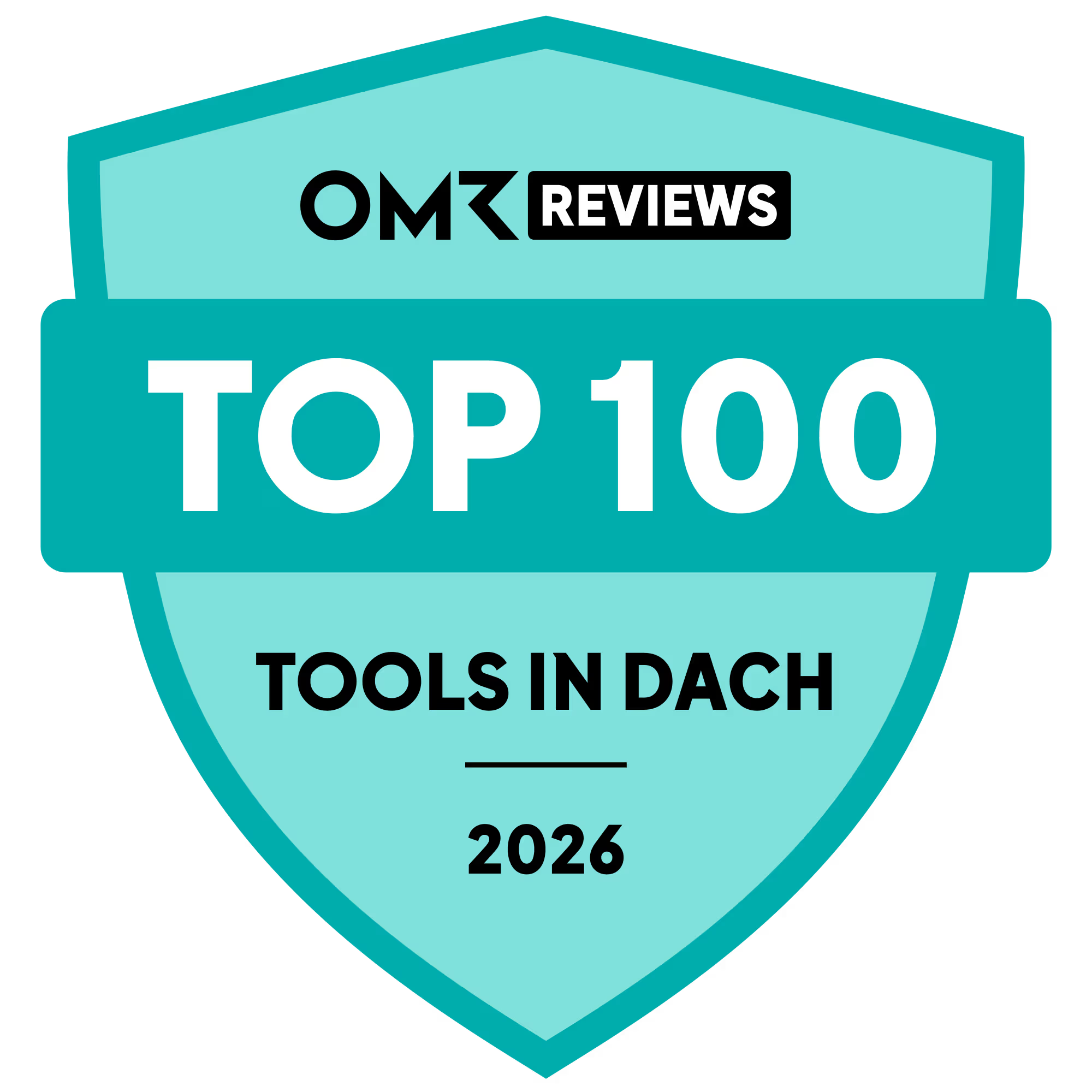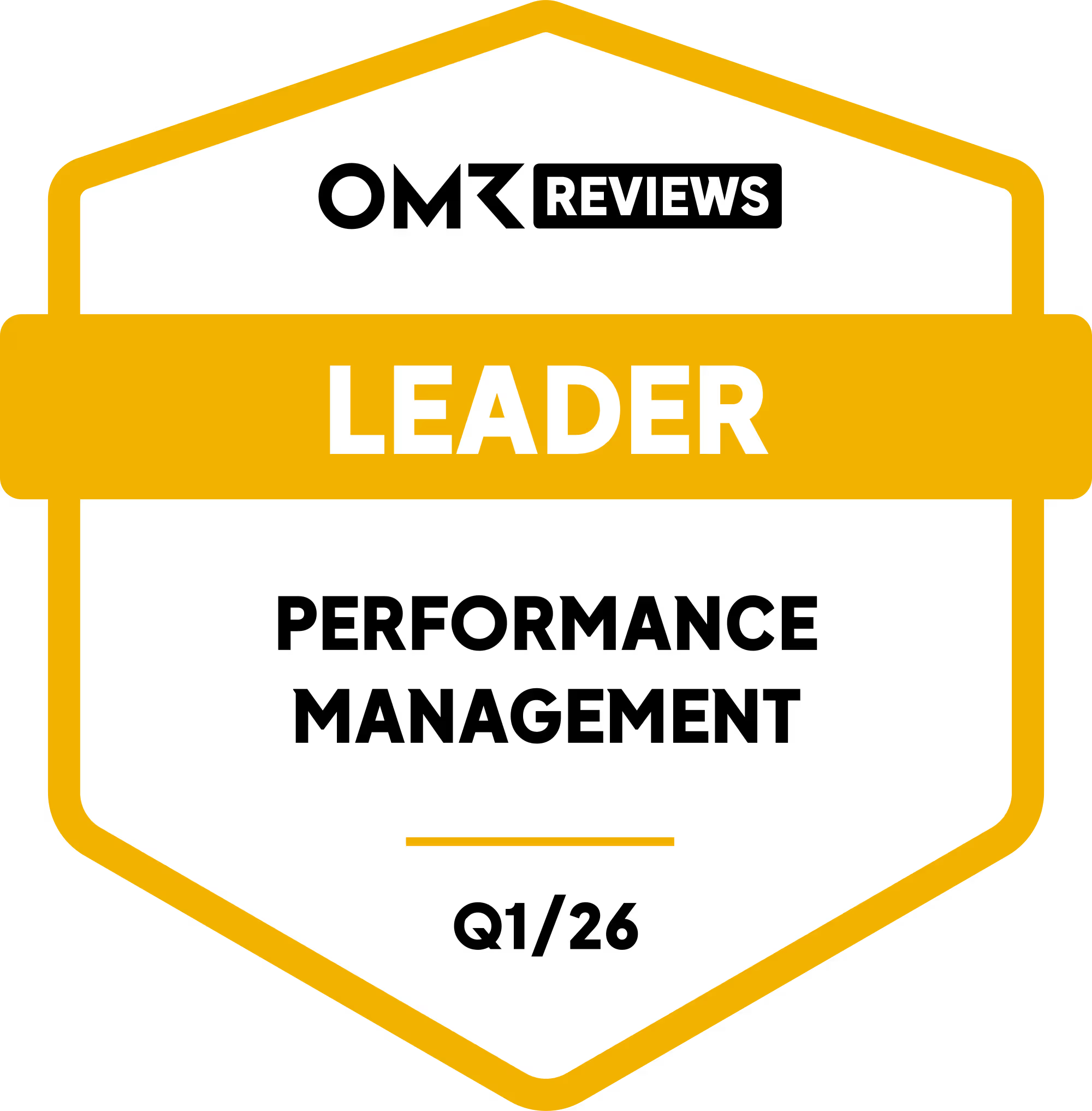Was ist das Ziel der Arbeitnehmerentschädigung? 6 Hauptziele

Obwohl die Vergütung nach wie vor ein unschätzbares Mittel ist, um zufriedene Mitarbeiter zu gewinnen, zu motivieren, zu belohnen und langfristig zu binden, hat sich die Vergütung im Laufe der Jahre geändert, um mit den sich ändernden Bedürfnissen und Wünschen der Mitarbeiter Schritt zu halten. Unternehmen, die in der „neuen Arbeitswelt“ anpassungsfähig bleiben wollen, müssen verstehen, wie sich die Vergütungsziele — und die damit verbundenen Erwartungen der Mitarbeiter — entwickeln. *
Wir werden uns sechs wichtige Vergütungsziele ansehen, um Unternehmens- und Personalleitern zu helfen, zu verstehen, welche Rolle Vergütung bei der Schaffung eines produktiveren, verantwortungsvolleren und zukunftsorientierteren Arbeitsumfelds spielt. Wir werden auch erörtern, wie Unternehmen Vergütungspakete erstellen können, die ihren Werten entsprechen.
*Forbes, 2022
🚀 Machen Sie Ihren Vergütungsplan mit Leapsome zum Erfolg
Mit Leapsome haben Sie Zugriff auf alle Daten und Erkenntnisse, die Sie für die Planung und Skalierung Ihrer Initiativen im Vergütungsmanagement benötigen.
👉 Erfahre mehr
6 Vergütungsziele
Jede Organisation verfolgt unterschiedliche Ziele hinter ihrem Ansatz Vergütungsmanagement. Aber jeder OPS-/HR-Experte wird Ihnen das sagen, unabhängig von den Zielen Ihrer Vergütungspolitik kommuniziere sie, erkläre sie klar und halte sie auf dem Laufenden. Auf diese Weise Ihre Mitarbeiter werden verstehen, wie sie mit den Geschäftszielen und Werten des Unternehmens umgehen.
1. Mitarbeiter binden und belohnen
Eine umfassende Vergütungsplan bietet nicht nur wettbewerbsfähige Gehälter, sondern sorgt dafür, dass sich Ihre Mitarbeiter wohlfühlen — obwohl das ebenfalls entscheidend. Ihr Vergütungsplan sollte erläutern, wie Ihr direktes Vergütungsmodell (Gehalt, Boni, Eigenkapital) mit Ihren Geschäftszielen zusammenhängt, und den Zusammenhang zwischen Ihren Rahmenbedingungen für die Mitarbeiterentwicklung und Ihre gestreiften Gehaltsstrukturen. Ihre Mitarbeiter werden dann verstehen, dass ihre Vergütung und Karrieren werden nicht statisch sein und das werden sie für gute Leistungen belohnt.
Wenn Unternehmen ihren Fokus darauf verlagern, Mitarbeiter zu halten und die Kosten für die Einstellung neuer Mitarbeiter zu vermeiden in Zeiten von wirtschaftlicher Abschwung oder Inflation, wird die Verbesserung der Vergütung durch Gehaltserhöhungen und Prämien zu einer wichtigen Ressource, um mehr Arbeitszufriedenheit zu schaffen und Talente an sich zu binden.
Sie müssen sich jedoch nicht allein auf direkte Vergütungen verlassen, um Ihre Mitarbeiter zu motivieren und zu binden. Nichtfinanzielle Belohnungen wie flexible Arbeitszeiten, großzügige PTO und personalisierte Lernmodule kann Ihnen helfen, Ihr Unternehmensbudget einzuhalten und Aufrechterhaltung der Moral der Mitarbeiter.
💰 Sie wissen nicht, wie Sie mit der Vergütungsplanung Ihres Unternehmens beginnen sollen?
Erfahre mehr über das neue von Leapsome Tool für das Vergütungsmanagement!
2. Leistung motivieren
Für Unternehmen, die ihr Geschäft in unsicheren Zeiten weiter vorantreiben wollen, ist es nicht immer möglich, das Grundgehalt für alle zu erhöhen — obwohl Unternehmen immer die Inflation und ihre Auswirkungen auf die Lebenshaltungskosten berücksichtigen sollten.
Einige Unternehmen können eine finanzielle Entschädigung in Anspruch nehmen (wie Anreizvergütung, Boni und Gehaltserhöhungen), um Mitarbeiter zu ermutigen, ihre Einzel- oder Teamleistung zu maximieren. Daten von Gartner aus dem Jahr 2022 zeigen beispielsweise, dass als Reaktion auf die Inflation 51% der CEOs und CFOs planen, die Löhne für Leistungsträger zu erhöhen, während 28% planen, sie für alle Mitarbeiter zu erhöhen.
Die Entscheidung einiger Unternehmen, die Personalgehälter nur für Leistungsträger zu erhöhen, bedeutet nicht, dass Gehaltserhöhungen für das gesamte Unternehmen langfristig nicht Teil ihres Vergütungssystems sein werden. Es bedeutet jedoch, dass sie sich möglicherweise etwas Zeit nehmen müssen, um zu sehen, wohin sich der Markt entwickelt, bevor sie umfassendere, lang anhaltende Änderungen vornehmen.
3. Gewinnen Sie Top-Talente
Wachstumsorientierte Unternehmen wissen, dass die Einrichtung eines soliden Gesamtvergütungspakets zur Gewinnung von Top-Talenten eine hervorragende Möglichkeit ist, sich bei der Rekrutierung von Mitbewerbern abzuheben. Neben der Bereitstellung guter Gehaltspakete für gefragte Fähigkeiten können ganzheitliche Leistungen wie die Erstattung von Studiengebühren und Kinderbetreuungsstipendien einen großen Beitrag dazu leisten, Ihre besten Mitarbeiter zu gewinnen und zu halten.
Aber was tun Sie, wenn andere Unternehmen ein erstklassiges Vergütungsprogramm wie Ihres haben?
Basierend auf einem aktuellen Bericht Morgan Stanley, eine Eigenkapitalvergütung — oder die Zahlung in Unternehmensaktien — ist ebenfalls ein effektiver Ansatz für die Talentgewinnung. Es wird immer beliebter, weil es den Mitarbeitern beim Geschäftsvorsprung „etwas zu verlieren“ gibt. Im Gegensatz zum Gehalt verlieren Mitarbeiter nach dem Ausscheiden aus einem Unternehmen nicht unbedingt Eigenkapital (sofern sie die von der Organisation festgelegte Sperrfrist abgeschlossen haben).
4. Verstärken Sie Ihr Engagement für DEI-Initiativen
Ein werteorientiertes Unternehmen mit einem festen Bekenntnis zu Diversität, Gleichheit und Inklusion (DEI) Initiativen können es sich nicht leisten zu übersehen, welche Rolle das Vergütungsmanagement bei der Schaffung einer psychologisch sicher und inklusiver Arbeitsplatz. Diskussionen über die Entlohnung von Mitarbeitern sollten immer beinhalten, wie Ihr Unternehmen damit umgehen wird Eigenkapital zahlen (gleicher Lohn für dieselbe Arbeit auf der Grundlage von Erfahrung und Leistung).
Und obwohl es stimmt, dass sich die Gehaltslücke langsam schließt, Lücken in der Vergütung sind immer noch weit offen für Frauen und unterrepräsentierte Gruppen. Unternehmen, die Teil einer positiven Veränderung sein wollen, müssen entscheiden, wie sie an diesem Diskurs teilnehmen wollen.
⭐ Top-Tipp: Möchten Sie wissen, ob Ihre DEI-Initiativen — oder irgendwelche Initiativen — eine echte Wirkung auf Ihren Arbeitsplatz haben? Die Net Promoter Score für Mitarbeiter (eNPS) kann Ihnen Einblicke geben, wie Teammitglieder über die Arbeit in Ihrem Unternehmen denken und ob sie es anderen als Arbeitsplatz empfehlen würden. 🚀
5. Analysieren und steigern Sie den ROI
Sie sollten sich überlegen, wie Sie Ihr Vergütungssystem analysieren und messen Kapitalrendite (ROI). Auf diese Weise können Sie den Erfolg verfolgen und feststellen, wo Sie die beste Rendite erzielen.
Angenommen, Sie bieten Ihren Mitarbeitern ein ganzheitliches Vergütungspaket an. In diesem Fall müssen Sie wissen, wie sich jedes Element — vom Gehalt über die Vergütung bis hin zu den Gesundheitsleistungen — auf die Leistung auswirkt und Ihnen hilft, Mitarbeiter zu binden.
Und eine der besten Möglichkeiten, den ROI zu messen? Mitarbeiter in einer Umfrage befragen. Ihr Ergebnisse der Mitarbeiterbefragung kann detaillierte Einblicke in die Vergütung liefern, die Sie anhand von Kennzahlen wie dem jährlichen wiederkehrenden Umsatz (ARR) oder der Mitarbeiterfluktuation möglicherweise nicht ermitteln können.
6. Stärken Sie den Ruf Ihres Unternehmens
Arbeitnehmer, die fair bezahlt werden, sagen in der Regel bessere Dinge über ihre Arbeitgeber. Und im Zeitalter der digitalen Vernetzung, in dem Führungskräfte und Arbeitnehmer problemlos Gehaltsinformationen recherchieren und Wissen austauschen können, sollten Unternehmen sicherstellen, dass ihre Vergütungspläne einer Überprüfung standhalten.
„Neben der Gewinnung, Motivation, Belohnung und Bindung von Top-Talenten ist einer der übersehenen Vorteile der Mitarbeitervergütung die Steigern Sie es Ihrer Marke in Bezug auf das Mitarbeitererlebnis.
Wenn Sie sich um Ihre Mitarbeiter kümmern, erhalten Sie nicht nur deren Dankbarkeit und Wertschätzung — Sie festigen auch Ihren Ruf als Unternehmen, bei dem der Mensch im Mittelpunkt steht. [...] Mundpropaganda verbreitet sich schnell, und Unternehmen, von denen bekannt ist, dass sie sich um ihre Mitarbeiter kümmern, ziehen in der Regel die besten Talente auf dem Markt an.“
— Daniel Cook, Leiter der Geschäftsentwicklung und Personalberater bei Anwaltskanzlei Mullen & Mullen
Warum sollte sich die Personalabteilung mit den Zielen der Vergütung befassen?
Die Personalabteilung und die Personalabteilung sind dafür verantwortlich, ein Arbeitsumfeld zu schaffen, in dem der Mensch im Mittelpunkt steht, und das Verständnis der Vergütungsziele ist für diesen Prozess von entscheidender Bedeutung.
Ohne zu verstehen, wie Vergütung die Einstellung am Arbeitsplatz beeinflusst, ist es schwierig, die richtige Unternehmenskultur aufzubauen. Da die Leistung und das Wachstum eines Unternehmens in den Zuständigkeitsbereich der Personal- und Personalabteilung fallen, ist es auch wichtig, darüber nachzudenken, wie ein angemessener Vergütungsplan das Unternehmenswachstum fördert.
Das bedeutet nicht, dass Personalabteilungen und Führungskräfte mit Vergütungsplänen immer alles richtig machen werden. Es ist jedoch wichtig, stets zu versuchen, sich zu verbessern und konsequent nach Transparenz in Bezug auf die Vergütung zu streben — was immer wichtiger wird Generation Z tritt in die Belegschaft ein.

So stellen Sie sicher, dass Sie die Ziele Ihres Vergütungsplans erreichen
Ihr Führungsteam, Ihre Personalabteilung und vielleicht sogar ein zertifizierter Vergütungsexperte haben sich zusammengeschlossen, um eine Vergütungsphilosophie und ein Vergütungssystem zu entwickeln. Sie haben zwar eine Hürde überwunden, müssen aber dennoch sicherstellen, dass Sie Ihre Vergütungsziele erreichen. So geht's:
- Teilen Sie Ihren Mitarbeitern Ihren Vergütungsplan mit: Informieren Sie die Teammitglieder über Ihre Vergütungsphilosophie, wie Sie Vergütungspläne entwickeln, wie oft Sie diese überprüfen möchten und wie Sie das Feedback Ihrer Mitarbeiter zu diesem Thema einholen möchten.
- Feedback von Mitarbeitern einholen: So wie Sie Umfragen verschicken an Mitarbeiterengagement messen, Sie können sie auch verwenden, um zu sehen, wie die Mitarbeiter zu Ihren Vergütungspaketen stehen, und sie fragen, ob das Unternehmen etwas überprüfen soll.
- Überprüfen Sie Ihr Vergütungspaket regelmäßig: Führen Sie regelmäßige Vergütungsprüfungen durch, um sicherzustellen, dass Ihre Vergütungspakete weiterhin den Markt- und Branchenstandards entsprechen.
- Führen Sie ein- oder zweimal im Jahr eine Wettbewerbsanalyse durch: Erfahren Sie, wie Ihr Vergütungsplan im Vergleich zu Ihren Mitbewerbern abschneidet, damit Sie mit Ihrer Branche Schritt halten können.
- Benutzen Software für das Vergütungsmanagement um den gesamten Prozess zu automatisieren! Leapsomes Tool für das Vergütungsmanagement kann Ihren Personal- und Personalabteilungen die Daten und Funktionen zur Verfügung stellen, die sie für den Aufbau und die Skalierung Ihres Vergütungsmanagementprozesses benötigen.
Verbessern Sie Ihr Vergütungsmanagement mit Leapsome
Eine Vergütung kann so viel für Ihr Unternehmen tun! Und Ihnen zu helfen, Talente anzuziehen, zu halten, zu belohnen und zu motivieren, ist erst der Anfang. Die richtige Vergütungsstrategie kann Ihnen helfen, ein nachhaltiges, psychologisch sicheres Arbeitsumfeld zu schaffen, das auf Transparenz basiert und den Ruf Ihres Unternehmens in Ihrer Branche stärkt.
Und jetzt müssen Sie mit dem Vergütungsmanagement-Tool von Leapsome nicht alles manuell verwalten — Sie können den gesamten Vergütungsplanungsprozess von Anfang bis Ende optimieren.
🚀 Automatisieren Sie Ihre Vergütungsplanung mit Leapsome
Leapsome liefert die Daten und Erkenntnisse, die Sie für die Planung und Umsetzung Ihrer Vergütungsstrategie benötigen.
👉 Eine Demo buchen
Verwandte Artikel
Zurück zum BlogSind Sie bereit, Ihre Strategie zur Mitarbeiterförderung zu verbessern?
your People operations?
Informieren Sie sich über unsere Leistungsbeurteilungen, Ziele und OKRs, Engagement-Umfragen, Onboarding und mehr.
.webp)
.webp)
 Fordern Sie noch heute eine Demo an
Fordern Sie noch heute eine Demo an



































